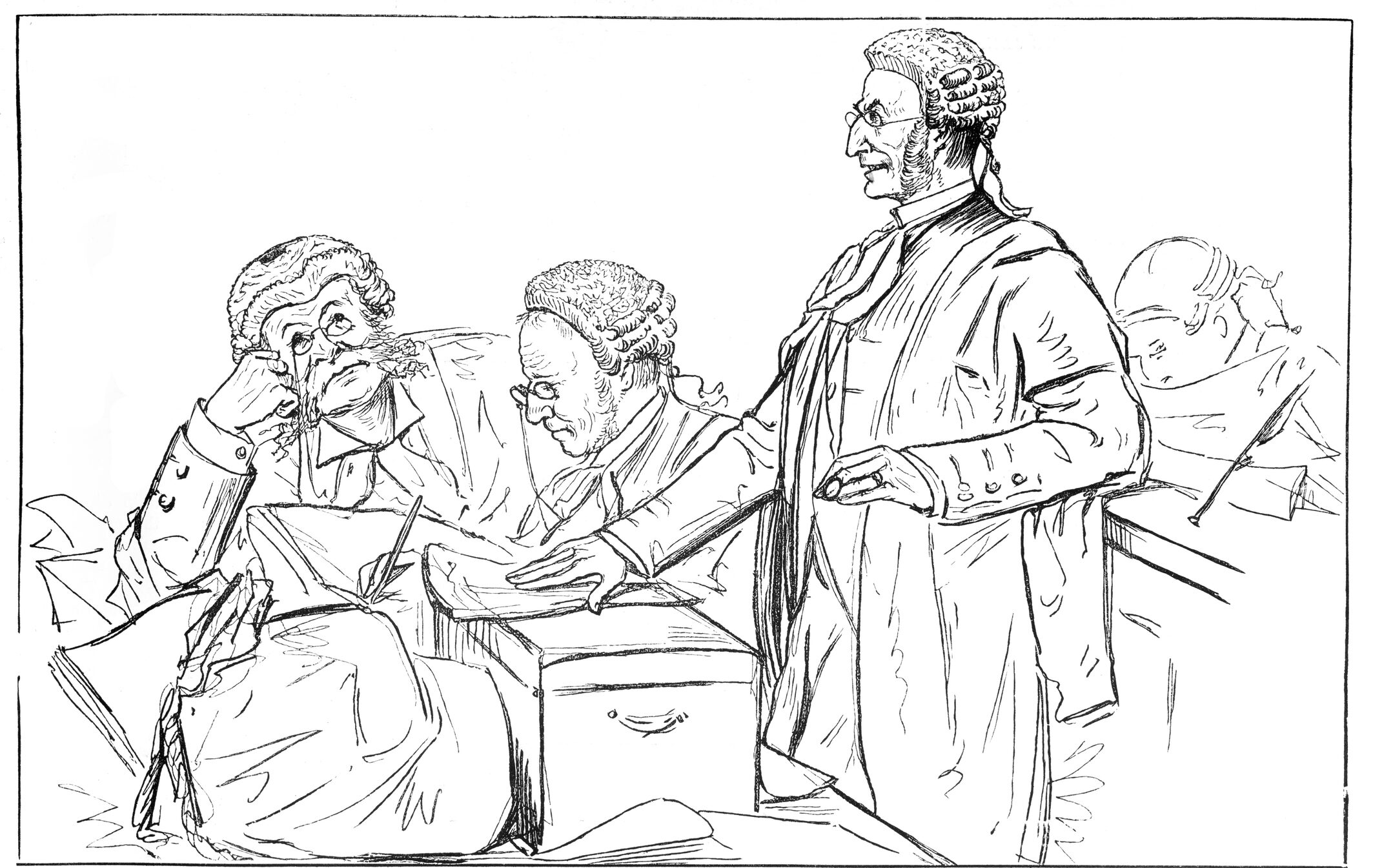Well, the first thing to say is that a solicitor is a lawyer and there is no such thing really as a lawyer in Ireland. One is either a solicitor or a barrister. Let me explain. Where most people get their information about Law is TV and from the many American TV series about Lawyers. This can range from the flattering such as Suits and The Good Wife to the not-so-flattering such as Better call Saul. In the USA, there is just one single branch of the Legal profession namely you are either a Lawyer who passed the relevant state bar association or you are not. Over there once you have passed the relevant exams, one is entitled to practice as a lawyer and the role encompasses everything from real estate law to Criminal Defence.
In Ireland, as it is in the UK, there developed a tradition that there are two distinct branches in the practice of law. Solicitors were generally the people who engaged with clients on a day-to-day basis and had offices with staff in the High Street of cities and towns.
So Who is a Solicitor?
A major difference is that solicitors handled clients’ money. So in a land transaction, proceeds of the sale would be lodged to the solicitor’s “client” account which would be held by the solicitor in trust for their client. As you can see, this level of trust given to a person required a lot of oversight. This was why traditionally the solicitor’s profession was regulated specifically by statute in Ireland. These statutes were called the solicitors acts and with many amendments still govern the regulation of solicitors in Ireland. Solicitors are subject to a wide range of disciplinary procedures which can require us to pay fines or potentially be prohibited from practicing as a solicitor ie “struck off”.
As well as this strict regulation, a solicitor could not practice as a solicitor in Ireland without what is called a “practicing certificate”. This is essentially a document that every solicitor must renew every year which allows a solicitor to practice. It is a criminal offense for a person to practice law without a practicing certificate. One of the basic requirements is that a solicitor must have professional indemnity insurance cover of up to €1.5 million euros. This in stark terms means if your solicitor messes up, you can sue him for his negligence and his insurance will cover this negligence up to €1.5 million. Every year your solicitor must file audited accounts with their regulatory body, the Law Society, and are subject to an audit of their Accounts, files, and Money Laundering obligations every few years. In short, it is not as simple to run and set up a grocery shop as it is a solicitor’s practice because we have greater powers and potential for abuse and are hence subject to greater regulation and scrutiny.
And How Does a Barrister Compare to a Solicitor?
Traditionally, the practice of a barrister was very different. Barristers were sole practitioners and operated in the courts and did not handle clients’ money. The general rule was that the barrister was similar to a consultant and a solicitor was akin to a General Practioner. The barrister received their work from solicitors and didn’t engage directly with the customer/client. It was previously prohibited for a barrister to receive instruction directly from the client. This has changed recently with a new act called the Legal Services Regulation Act 2015 which brought in changes to allow barristers to engage with the public. Change happens very slowly in the legal profession so this change in the law has had little to no change in how the legal system has always worked in Ireland.
So what does a Barrister do?
A barrister’s most obvious role is that they can be a specialist advocate. To be clear a solicitor can advocate in any court in Ireland and some do but the norm is that the majority of advocacy is performed by barristers. Barristers receive specialist training in this in their educational body the Kings Inn. A barrister can also be a specialist in a niche area of law and can provide opinions on nuanced areas of law in a similar way that a consultant in specific areas of medicine is referred by GPs for specific diagnosis. Within the barrister’s profession (and now solicitors) there are titles bestowed on certain more senior members of “Senior Counsel”. These “Senior Counsel” act in the Highest of Courts and in the most serious of cases and hence because of their expertise and experience attract higher pay. To be clear confusingly there are younger “Senior Counsel” and quite mature “Junior Counsel”. Age does not really come into the equation.
Where do Solicitors work, compared to Barristers?
When considering the difference between lawyers, solicitors, and barristers it is important to consider how and where they work. In contrast to barristers who work primarily from the Four Courts Complex in Dublin or in Circuit Courts around the country, the majority of solicitors in Ireland work in offices as employees of small and big practices all over Ireland. In Dublin especially a huge amount of Solicitors work in large firms which operate mainly in the sphere of commercial law. This kind of work in shareholders agreements/banking/ funds is very specialised and is mainly practiced in these big firms and their clients are governments and multinational corporations. In contrast, the traditional firm in a local town, practices mainly by representing people in the local district court, administering estates in probate, and doing conveyancing work for buying and selling houses and accident claims. Their clients are local people who attend personally at their physical offices.
Then How are Lawyers/Solicitors trained vs Barristers?
Finally, solicitors are trained in the Law Society of Ireland whereas Barristers receive an entirely different training in the Kings Inn. Solicitors are required to work in-house in a solicitor’s office as trainee solicitors and receive instruction in the core components of law and the practice of a solicitor. Barristers have a less formal version of this whereby they follow a senior barrister and observe their work for a period of time.
As you can see, in Ireland unlike the USA it’s not as simple as saying “What’s the Difference between a Lawyer and a Solicitor?”. The better question is “What’s the difference between a Solicitor and a Barrister?”
Contact Us for Expert Family Law Advice
If you are in need of a Family Law Solicitor in Dublin in a divorce where there are assets involved, please contact us at The Family Practice.



